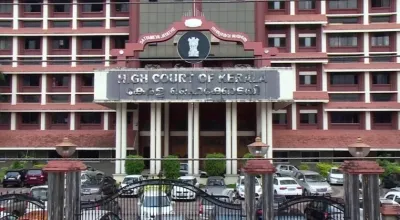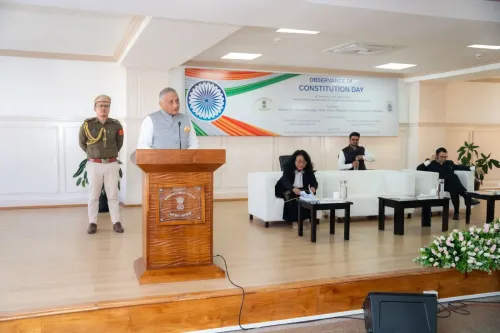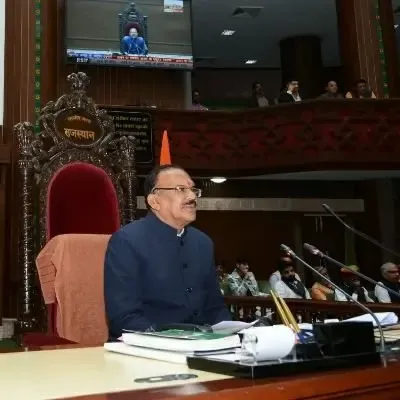Did the Kerala HC Offer Relief to Munambam Residents by Allowing Land Tax Payments?

Synopsis
Key Takeaways
- Residents can now pay land taxes.
- Court ruling supports property rights.
- Dispute involves historical land transactions.
- Interim relief granted pending ownership resolution.
- Significant implications for local governance.
Kochi, Nov 26 (NationPress) In a significant breakthrough for the residents of Munambam embroiled in a protracted land conflict with the Kerala Waqf Board, the Kerala High Court has granted them the green light to pay land taxes on their properties.
Immediately following the ruling, residents flocked to the revenue office to settle their land taxes.
The Court has also instructed the revenue officials to process these payments without any hindrance.
This interim order was issued by Justice C. Jayachandran while reviewing multiple petitions, including one from the Bhoo Samrakshana Samithi and various affected residents.
The petitioners contended that despite having lived on the land for decades with legitimate gift and sale deeds, the village office had denied them the right to pay land taxes, citing objections from the Waqf Board.
They argued that the land, originally bestowed to Farook College, has never been recognized as Waqf property, and over the years, the college management legally sold portions of the land to the families currently residing there.
Numerous residents have even constructed homes after obtaining building permits from local authorities.
“The petitioners hold absolute title to their properties and have reliably paid taxes based on prior sale deeds. Yet, the Village Officer is refusing to process tax payments, citing the Waqf Board’s claim. Authorities cannot obstruct essential procedures like tax payment, mutation, transfer, or mortgage,” the petition asserted.
Accepting these arguments, the Court has provided interim relief, allowing landowners to continue paying taxes until the ownership dispute is completely resolved.
The Munambam land conflict dates back to a 404.76-acre coastal property gifted in 1950 by Mohammed Siddique Sait to Farook College. Due to coastal erosion, the land has dwindled to around 135.11 acres.
While several families had already settled there and later acquired land from the college, the 2019 designation of the entire property as Waqf land by the Kerala Waqf Board invalidated prior transactions, leading to public outcry and legal battles.
In response, the State government appointed a commission led by former Justice C.N. Ramachandran Nair to propose solutions, although its formation was annulled by a single judge in March 2025. A Division Bench subsequently reinstated it in October 2025.









